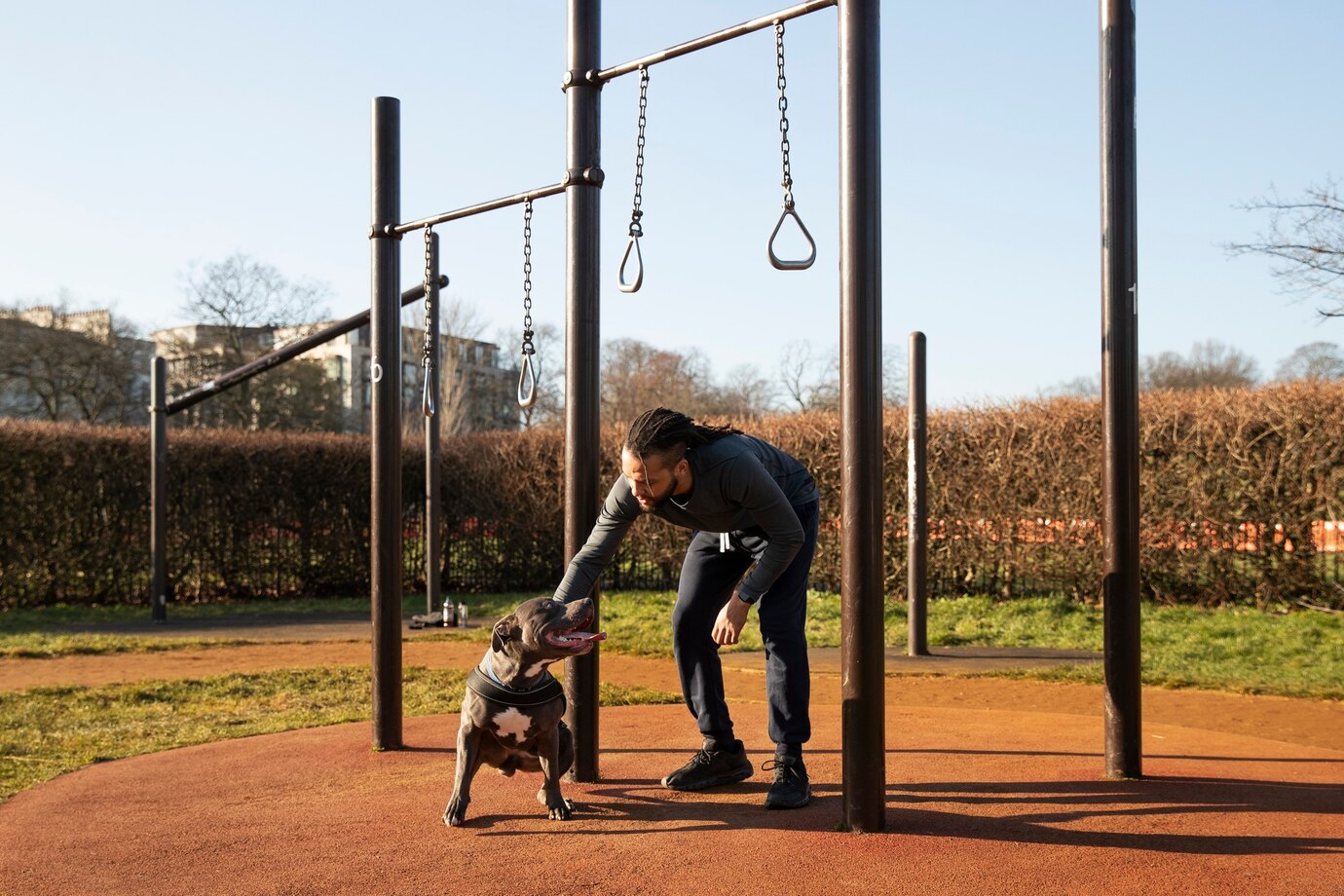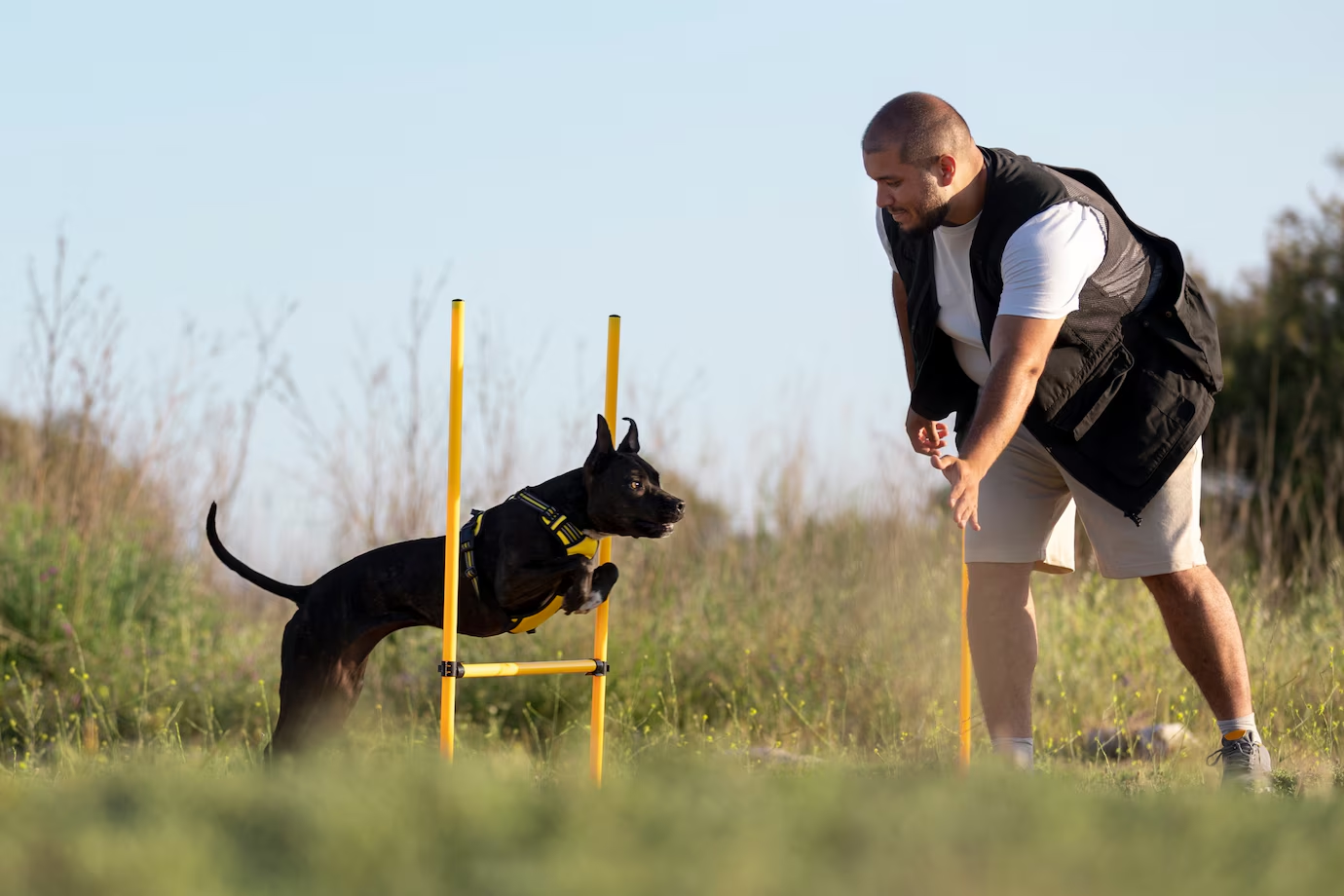Dogs are more than pets. They are loyal companions, guardians, and sometimes therapy animals. However, a dog’s attachment to its human takes time. It takes time, patience, and training. This is where personal dog trainers come into play. These experts offer training to help dog owners raise happy, well-behaved pets.
Some dogs may do well in group classes. But, personal trainers offer a unique, one-on-one approach. It addresses each dog’s specific needs. Personal dog trainers adapt their methods to each dog’s temperament. They work on obedience, behavior, or advanced skills.
This article will explore three things. First, the importance of hiring a personal dog trainer. Second, the various training methods used. Third, the benefits of investing in individualized dog training.
Understanding the Role of Personal Dog Trainers
Personal dog trainers are experts. They help develop skills and behaviors in dogs. Unlike traditional classes, which train multiple dogs and handlers at once, a personal trainer offers one-on-one attention. This custom approach finds specific issues that may hinder a dog’s development. They may come from anxiety, aggression, or disobedience.
Trainers typically use many techniques. They combine positive reinforcement with behavioral science. It helps dogs learn and strengthens the bond with their owners. Personal dog trainers provide personalized attention. This ensures training sessions match each dog’s unique temperament and learning style. It makes the training more effective.
Why Choose a Personal Dog Trainer?
Many options exist for training dogs, like group classes and online tutorials. Personal dog trainers, however, have certain benefits that make them stand out. The trainer can address specific issues not covered in a group setting.

Tailored Approach to Training
Every dog is unique, with its own personality, learning pace, and challenges. What works for one dog might not work for another. Personal dog trainers customize their methods for each dog’s traits and issues. This customized strategy is essential to bringing about long-lasting behavioral changes.
A hyperactive Border Collie needs different techniques than a shy Basset Hound. The trainer’s ability to adapt to these differences makes training better.
Strengthening the Dog-Owner Bond
A key benefit of a personal dog trainer is a stronger bond between the dog and its owner. These trainers do not just work with the dog. They also educate the owner. They teach the owner to reinforce good behaviors and maintain discipline at home.
Training is most effective when the owner actively participates in the process. Personal dog trainers help owners understand their dogs’ signals. They also teach owners to communicate effectively. This fosters mutual respect and understanding.
Flexibility and Convenience
Personal dog trainers are flexible. Unlike group sessions, they have fixed times and places. Sessions can be arranged based on the owner’s availability. They can be conducted at home, in the park, or at any convenient location. Due to its adaptability, training becomes a daily aspect of the dog’s life. It helps to reinforce learned behaviors consistently.
Types of Training Offered by Personal Dog Trainers
Personal dog trainers offer many training options. They tailor them to the needs of both the dog and the owner. Below are some of the most common training services provided:
Obedience Training
A highly sought-after service of personal dog trainers is basic obedience training. This includes teaching your dog essential commands such as “sit,” “stay,” “come,” “heel,” and “leave it.” These commands ensure your dog behaves at home and in public.
Personal dog trainers often use positive reinforcement in obedience training. They reward good behavior with treats, praise, and toys. This makes learning enjoyable for the dog and helps create a stronger bond between the pet and the owner.
Behavior Modification
Behavior problems are a common reason for dog owners to seek personal trainers. These include aggression, excessive barking, and destructive chewing. Dog psychology requires a deeper understanding in order to modify behavior. It often involves finding the root cause of the issue: fear, anxiety, or dominance.
A personal dog trainer will change the dog’s bad behaviors. They will use consistent training techniques, like desensitization, counter-conditioning, or reward-based methods. The trainer works closely with the dog owner. This ensures they use the right techniques at home.
Socialization
Socializing a dog is critical, especially during its formative months. Personal dog trainers can help dogs that missed early socialization. They can also help those that struggle to interact with other dogs and people. These trainers guide dogs in controlled social situations. This helps the dogs learn to behave when interacting with others.
Personal dog trainers excel at introducing dogs to new places, other dogs, and kids. They make the experience positive and stress-free for the dog.
Puppy Training
Puppies need particular consideration during training. A personal dog trainer can help new puppy owners. They can help with housebreaking, crate training, and stopping nipping and chewing.
Because puppies are impressionable, early training sets the stage for future behavior. A personal dog trainer will teach the puppy good habits. This will make life easier for both the dog and the owner.
Specialized Training
Some dogs are trained for specialized purposes such as therapy, assistance, or protection. Expert personal dog trainers can prepare dogs for specific roles. These include helping people with disabilities, providing emotional support, or being guard dogs.
Specialized training often needs a skilled dog trainer. They must know the job the dog will do. These trainers are experts in developing the skills needed for these unique tasks.
Benefits of Hiring a Personal Dog Trainer
The benefits of hiring a personal dog trainer are vast and varied. The impact of individualized training on both the dog and the owner can be life-changing. Below are some of the key advantages:
Faster Progress
One of the most notable benefits of working with a personal dog trainer is the speed of progress. A personalized approach helps dogs learn faster than in groups. In groups, the trainer’s attention is divided. The one-on-one sessions allow for quick fixes to bad habits and faster skill-building.
Stronger Bond Between Dog and Owner
Being around a well-trained dog is delightful. Working with a personal dog trainer helps bond the dog and owner. As the dog learns to trust and respond to commands, the owner gains confidence in handling their pet. This mutual respect creates a harmonious relationship that benefits both parties.
Tailored Solutions for Problem Behaviors
Dogs with behavior problems, like separation anxiety or aggression, often need custom solutions. Basic training won’t work for them. A personal dog trainer can create a program for your dog’s issues. It will address the root causes, not just the symptoms.
For example, a dog who barks excessively at the doorbell may be acting out of fear or excitement. A personal dog trainer will find the root issue. They will use strategies to change the dog’s response. This may include desensitization or teaching the dog to go to a spot when the doorbell rings.
Long-Term Behavioral Improvements
The goal of a personal dog trainer is not just short-term obedience. It is to achieve long-term behavioral change. These trainers teach skills and techniques. They keep the dog well-behaved for years. This is vital for dogs with a history of trauma, neglect, or poor training.

Convenience and Flexibility
Another big plus of hiring a personal dog trainer is the convenience it offers. Sessions can be scheduled at times that work with your schedule. Training can take place at your home or a familiar, comfortable place for your dog. This flexibility allows for a more productive, relaxed learning experience for your dog.
Support Beyond Training Sessions
Group classes have limited trainer time. Personal dog training offers ongoing support. Outside of training sessions, trainers frequently offer guidance. They help with new challenges as they arise. This ensures that dog owners feel supported throughout their training journey.
The Cost of Personal Dog Training
Personal dog trainers can vary in cost. It depends on location, trainer experience, and the training program’s scope. On average, rates can range from $50 to $150 per hour, with packages often available at a discounted rate.
Factors Influencing Costs
Geographic Location: Urban areas have higher rates due to a higher cost of living.
Trainer Experience: More experienced trainers with established reputations may command higher fees.
Session Length: Some trainers offer shorter, cheaper sessions or longer, pricier ones.
Training Packages: Many trainers offer multi-session packages that save clients money.
Over time, training expenditures might result in cost savings. It can prevent costly damages from behavioral issues.
Conclusion
In today’s world, dogs are more than just pets—they are cherished members of the family. Personal dog trainers are vital for helping dogs live balanced, happy lives. Personal dog trainers provide an invaluable service. They use tailored training, individual attention, and a deep understanding of canine behavior. Both the dog and the owner gain from this. A personal dog trainer can have a profound, lasting impact. It can help with behavioral issues, advanced training, and owner-dog communication.
A personal dog trainer can improve a dog’s behavior. Owners will then have a better, more fulfilling relationship with their pet.